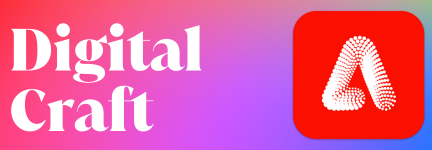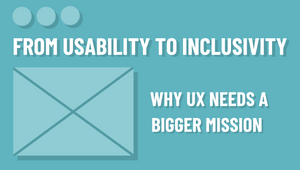
Meet the Technologists: Jaie Genadt

As UK chief technology officer, Jaie Genadt is at the forefront of Momentum’s technology experience offering, ensuring that the most entertaining, impactful and creative technology is used to drive brand performance and engagement. From digital strategic thinking to delivery, he considers every client touchpoint across experiential, shopper and sponsorship.
Jaie has experience working with brands like Verizon, Microsoft, SAP, General Motors and is responsible for ensuring the agency maintains its edge with the latest in experience-led technologies such as 5G, extended reality, interactive, IoT, AI, machine learning (the list of technologies he’s interested in goes on...).
He says his overriding aim is to help brands create the most iconic and unforgettable physical and online experiences through the application of these cutting-edge technologies
.
2020 continued this innovation, with Jaie acting as product sponsor of VXi – Momentum’s virtual experience platform – which has been brought to life with a number of clients including, recently, American Express.
LBB’s Alex Reeves caught up with Jaie to talk about his route into the role he holds and to check in on how he thinks experiential is changing as a result of the pandemic.
LBB> 2020 saw a very clear shift come about as experiences in many parts of the world, and pretty much everywhere, needed to be had at home. So what were the most interesting adoptions that you've seen in the past year in the experiential space?
Jaie> I think those that were very reliant on physical interactions woke up to the power of digital, and that although it does not offer the same type of experience, it has a valid place, whether it's reach level or engagement in terms of numbers of people. That’s obviously one space that really became obvious last year.
LBB> Are there any examples that stand out?
Jaie> Let’s take American Express as an example, specifically their Summit for Success. Previously, the role of digital was more about being additive to the in-person experience, such as creating interactive installations at physical events. When you look at Summit for Success, they were getting just under 1,000 people engaged in their physical event. But through Amex Campus (a virtual platform we created), there were over three times that level. The reaction from their audience was phenomenal in terms of the level of interactivity in the campus. There are a lot of naysayers out there who say, “A platform is just a platform and that is all about the content,” but actually that's not entirely true. It’s about having a great platform and great content to create a brilliant experience, and that is exactly what we did for Summit for Success for American Express.
LBB> And that kind of answers the question around what projects you've worked on that best illustrate this shift. What recent changes in the experiential landscape do you think will be permanent?
Jaie> Well, I think understanding the digital space and that it's an important channel. I think experiential always understood digital was there and it was important, but I think it never really fully took advantage of it. Having to be fully reliant on it for nearly 12 months, people have really woken up, so with physical coming back and everybody talking about hybrid, we’re carving out what that means. Is it going to be informing the future of experiential and how online audiences and physical audiences can come together in meaningful ways? What I don't want to see happen in the sector is for the last 12 months to have been in vain and we just forget about them. There are a lot of great learnings to take forward.
LBB> Tell me about your first encounters with technology. Where does that interest come from and did it manifest at an early age?
Jaie> It was when I was around four or five years old, building computers with my dad. He would go and buy all the parts and we would build them together. We'd go and research all of the latest and greatest hardware, CPUs, memory and motherboards, and we would build PCs together. So it came from my dad, and it's just, I guess, stuck ever since really. I also have the personality for technology—take that however you want!
LBB> What did you study and what were you interested in at the time?
Jaie> Actually, I didn't even finish high school. I think I dropped out at 17, something like that. I’d had enough of school life, anyway, and then went touring around Australia and Southeast Asia with bands and comedians and things.
I developed a real passion for audio, and I came back and thought, “I need to do something, otherwise I’m gonna end up a bum like the roadies I've just spent the last 18 months with.” So I got some cash together and started studying for a recording arts degree, majoring in audio engineering. I think it was a three- or four-year degree, and while I was doing that, I was also working for free in any recording studio that would have me. I got into a couple of the top ones in Sydney, and started a really good professional relationship with this guy from the UK. He worked in all the best studios in the UK and US, and worked with The Rolling Stones, Iron Maiden and some other pretty big names. He said, “Well, why are you wasting your time studying and spending all this money?” He took his own example: he came up from a tea boy and did this and that to where he is now, and he said, “you don't need to waste your time and money on that, just come and work here and I will teach you.” So I did that, and then six months later, he said I should go to London. Two weeks later I was in London, and that was 16 years ago.
LBB> And then what took your career into experiential creativity?
Jaie> I was doing live sound to feed myself when I came to London, since being in the studio wasn't enough, and so I had to work late in the evenings doing that to pay the rent. One thing led to another, and all of a sudden I was out in Dubai working in experiential and I thought “pretty cool place to work in experiential, right?” Then, four weeks into being there, I was second in charge of all the technology for the launch of the Palm Jumeirah. I kind of got thrown in at the deep end and tested, so it was either sink or swim, and I managed to keep my head just above the water. That was an eye-opening experience out there—lots and lots of money thrown at things and everything had to be the biggest and best in the world. Yeah, lots of lots of big lessons, very fast.
LBB> What have been the biggest technological or cultural shifts that have impacted your career?
Jaie> Making a shift from a technology point of view, from just general production technologies into software. From six or seven years ago, that's really expanded my horizon and my offering—not just looking at the technology, but how it can be used effectively and putting creative spins on it. Culturally, the pandemic over the last 12 months. Satya from Microsoft says it perfectly: “Years of innovation in three months.” I don't think the world has seen anything like it. So quickly, new technologies that people were expecting 10 years from now are being demanded now, which is great. It's really good. Generally, humanity is now a lot more open to technology.
LBB> And what sorts of client briefs do you get most excited about and why?
Jaie> It’s less the client briefs and more the clients. A perfect case is our Chevrolet client. She has a great understanding of technology-driven solutions and she's willing to be bold and brave, to push the boundaries and provide the environment to be able to do that.
LBB> What do you find is the most useful resource or area of knowledge to draw upon in your work?
Jaie> Understanding users; understanding the people that will be on the other side of the technology. I'm getting a deep understanding of their needs; that process of going from user to user understanding and researching. Understanding the user through building a solution that fills that need. It's been a big shift at Momentum—well, certainly from the technology team—over the last 12 months. Following that process and having active work that demands that process is really exciting to carry through into the future. I mean, you just look at the work we did with Verizon for the Super Bowl, such a great example.
LBB> Is there a piece of technology that you find particularly exciting at the moment?
Jaie> Well, there's so many! I think the thing with technology is that it's a very noisy field. Strategically, we've kind of narrowed it down to plays that we think are the most relevant to our sector. Those are extended reality, AI, the internet of things (IoT), blockchain and mobile edge computing. Out of all of that, mobile edge computing is probably the most exciting because that's the one that's going to facilitate mass adoption and deliver on the expectations people have in their heads. Of all the technology across all of those different areas that I just mentioned, I think AR and mixed reality are going to explode in the next two to five years.
Once 5G/6G-enabled devices are out there, glasses are going to become a thing to replace the smartphone. There’s so much potential in that specific technology supported by edge computing. Particularly for our industry, voice-powered technology is being pushed heavily now. I think the next technology to replace voice as a strategy for marketeers is going to be either an XR or an AR strategy. I think that’s going to be huge.













